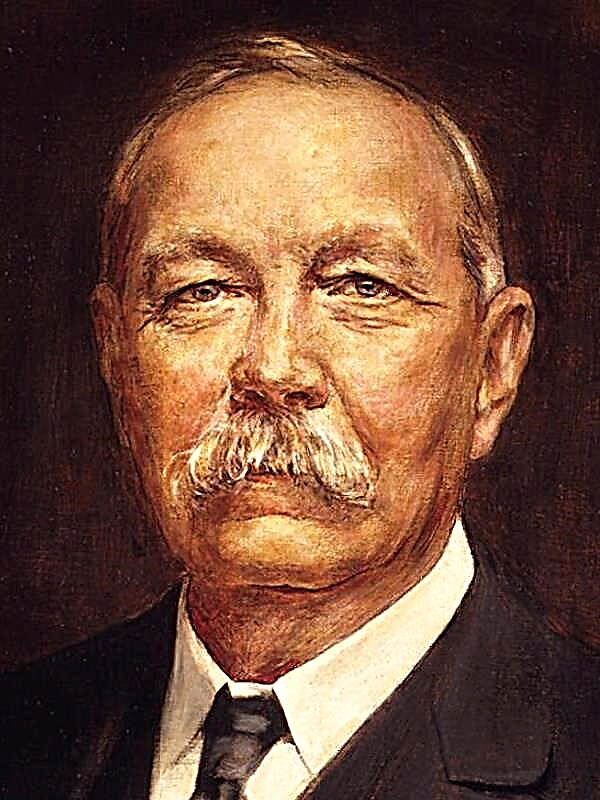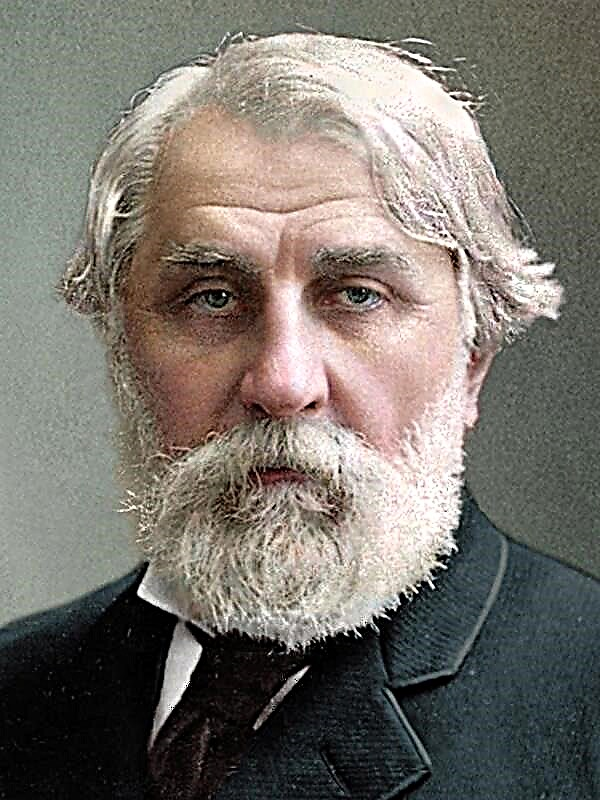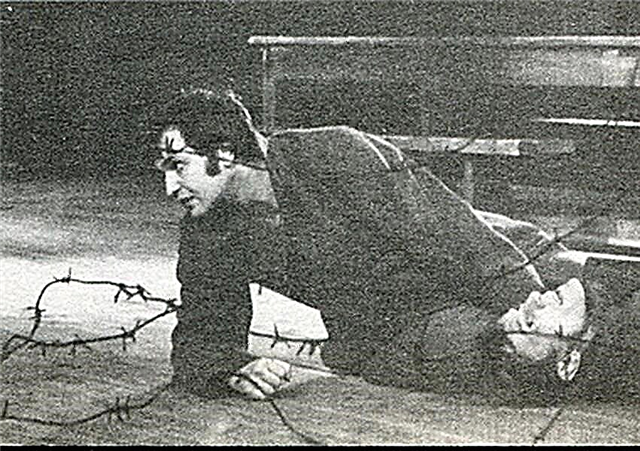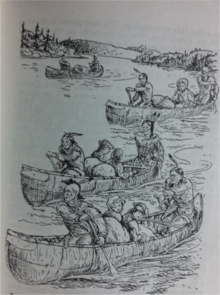The captain of the vessel “Candon-Baddung” Vantah, engaged in pearl fishing off the coast of Sumatra, unexpectedly discovers the amazing Devle Bay on Tanamas Island. According to local residents, devils are found there. However, the captain finds intelligent creatures there - these are salamanders. They are black, meter and a half in height and seem to look like seals. The captain tames them by helping to open the shells with their favorite treat - clams, and they catch him mountains of pearls. Then Vantach takes a vacation in his shipping company and travels to his homeland, where he meets with his Countryman, a successful businessman G. X. Bondi. Captain Vantahu manages to convince the rich man to embark on the risky adventure he offers, and soon the price of pearls begins to fall due to sharply increased production.
Meanwhile, the problem of salamanders is beginning to interest world public opinion. At first there are rumors that Vantah is delivering devils around the world, then scientific and pseudo-scientific publications appear. Scientists conclude that the salamanders discovered by Captain Vantah are an extinct species of Andrias Scheuchzeri.
One of the salamanders enters the London Zoo. Once she speaks to the watchman, introducing herself as Andrew Sheikhtser, and then everyone begins to understand that the salamanders are intelligent creatures that can speak, and in different languages, read and even reason. However, the life of the salamander, which became a sensation of the zoological garden, ends tragically: visitors overfeed it with sweets and chocolate, and it becomes sick with catarrh of the stomach.
Soon, a meeting of shareholders of the Pacific export company engaged in the exploitation of salamanders. The assembly honors the memory of Captain Vantakh, who died of an apoplexy attack and makes a number of important decisions, in particular, on stopping the production of pearls and on giving up the monopoly on salamanders, which multiply so quickly that it is impossible to feed them. The board of the company proposes to create a giant Salamander syndicate for large-scale exploitation of salamander, which it plans to use in various construction works in the water. The salamanders are transported around the world, settling them in India, China, Africa and America. True, strikes are taking place in some places in protest against the crowding out of the human labor force, but monopolies benefit from the existence of salamanders, since this allows expanding the production of implements necessary for salamanders and agricultural products. Concerns are also being expressed that salamanders would threaten fishing and undermine the shores of the continents and islands with their underwater burrows.
Meanwhile, the exploitation of the salamander is in full swing. Even a graduation of salamanders has been developed: leading, or overseers, the most expensive individuals; heavy, designed for the most difficult physical work; tim - ordinary "workhorses" and so on. The price also depends on belonging to a particular group. The illegal trade in salamanders also flourishes. Mankind is inventing more and more new projects for the implementation of which these animals can be used.
In parallel, scientific congresses are held, exchanging information in the field of both physiology and psychology of salamanders. A movement is unfolding for the systematic school education of bred salamander, discussions arise about what education the salamanders should be taught, what language they should speak, etc. An international League for the patronage of salamanders appears, which aims to build relations between humanity and salamanders on the basis of decency and humanity . Legislation related to the salamanders is being adopted: since they are thinking creatures, they themselves must be responsible for their actions. Following the publication of the first laws on salamanders, people appear demanding recognition of certain rights for salamanders. However, it doesn’t occur to anyone that the “salamander question” can be of the greatest international significance and that salamanders will have to deal not only with thinking creatures, but also with a single salamander collective or even a nation.
Soon, the number of salamanders reaches seven billion, and they inhabit over sixty percent of all coasts of the globe. Their cultural level is growing: underwater newspapers are being published, scientific institutes are emerging where salamanders work, and underwater and underground cities are being built. True, the salamanders themselves do not produce anything, but people sell them everything up to explosives for underwater construction work and weapons to fight sharks.
Soon, the salamanders realize their own interests and begin to repulse people who intrude into the sphere of their interests. One of the first is a conflict between salamanders and peasants who have eaten around gardens, who are unhappy with both salamanders and government policies. The peasants begin shooting the marauding salamanders, to which they come out of the sea and try to take revenge. Several companies of the infantry hardly manage to stop them, in revenge they blow up the French cruiser Jules Flambo. After some time, the Belgian passenger steamer Udenburg, which was in the English Channel, was attacked by the salamander - it turns out that the English and French salamander did not share something among themselves.
Against the background of the disunity of mankind, the salamanders unite and begin to come forward with demands to cede living space to them. As a show of strength, they set up an earthquake in Louisiana. The Supreme Salamander demands the evacuation of people from the sea coasts indicated by him and invites humanity, together with the salamanders, to destroy the world of people. The salamanders really have great power over people: they can block any port, any sea route and thereby starve people. So, they declare a complete blockade of the British Isles, and Britain is forced to declare war on the salamanders in response. However, the fighting of the salamanders is much more successful - they just begin to flood the British Isles.
Then a global settlement conference is convening in Vaduz, and the lawyers representing the salamanders offer to meet all their conditions, promising that "the flooding of the continents will be carried out gradually and in such a way as not to bring the matter to panic and unnecessary catastrophes." In the meantime, flooding is in full swing.
And in the Czech Republic lives and lives pan Povondra, a doorman in the house of G.X. Bondi, who at one time could not let Captain Vantakh on the threshold and thereby prevent a universal catastrophe. He feels that it is he who is to blame for what happened, and he pleases him only because the Czech Republic is located far from the sea. And suddenly he sees in the Vltava river the head of a salamander ...
In the last chapter, the author talks to himself, trying to come up with at least some way of saving mankind, and decides that the “western” salamanders will go to war on the “eastern”, as a result of which they will be completely exterminated. And humanity will begin to recall this nightmare as another flood.












